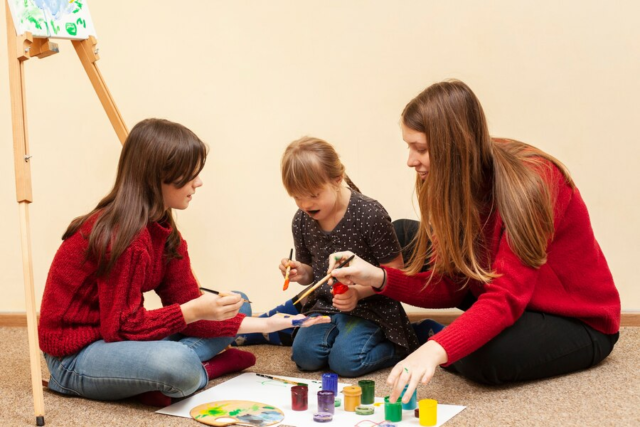In the realm of child psychology and therapy, one approach stands out for its effectiveness and unique methodology: play therapy. This therapeutic technique is specifically designed to help children express themselves, explore their thoughts and emotions, and resolve their inner conflicts through play. It might seem simplistic at first glance, but play therapy is a profound tool that can facilitate significant healing and growth in young minds.
What is Play Therapy?
Play therapy is a form of psychotherapy that uses play as the primary mode of communication between the therapist and the child. Unlike traditional talk therapy, where conversations dominate, play therapy relies on the natural language of children—play. Through play, children can symbolically represent their experiences, feelings, and thoughts in a way that is comfortable and familiar to them.
Play therapists are trained to observe and interpret the child’s play behaviors, identifying themes, conflicts, and emotions that may be causing distress or hindering healthy development. By engaging in play activities chosen by the child, therapists create a safe and supportive environment where children can freely express themselves without feeling pressured or judged.
How Does Play Therapy Help?
Emotional Expression:
Many children struggle to articulate their emotions verbally, especially when dealing with trauma, anxiety, or other challenging experiences. Play therapy provides a non-verbal outlet for them to express and explore their feelings. Whether through drawing, storytelling, role-playing, or using toys and games, children can communicate complex emotions that they might not yet understand or be able to put into words.
Problem Solving and Coping Skills:
Through guided play, therapists help children develop problem-solving skills and learn healthy coping mechanisms. They may encourage the child to confront fears, resolve conflicts, or practice social skills in a controlled, supportive setting. These experiences empower children to navigate real-life challenges more effectively.
Building Trust and Confidence:
The therapeutic relationship formed during play therapy is crucial for a child’s emotional growth. By providing a safe space where their thoughts and feelings are respected and validated, therapists build trust with their young clients. This trust can improve the child’s self-esteem and confidence, fostering resilience and a positive self-image.

Healing from Trauma:
Children who have experienced trauma, abuse, neglect, or significant life changes often struggle with trust, fear, and emotional regulation. Play therapy allows them to process their trauma at their own pace, gradually making sense of their experiences and developing healthier coping strategies.
Supporting Developmental Challenges:
For children with developmental delays, learning disabilities, or behavioral issues, play therapy can be adapted to address specific developmental goals. Therapists use play to encourage sensory integration, motor skills, language development, and social interactions, promoting overall growth and well-being.
The Role of the Play Therapist
Play therapists undergo specialized training to understand child development, psychological theories, and therapeutic techniques specific to play therapy. They are skilled in creating a nurturing environment that encourages exploration and self-discovery while maintaining professional boundaries and ethical standards.
During sessions, therapists may use a variety of techniques depending on the child’s age, personality, and therapeutic goals. These can include directive approaches where therapists guide the play towards specific objectives, or non-directive approaches where children lead the play and therapists observe and interpret their behaviors.
Conclusion
Play therapy is not just a form of recreation; it is a powerful therapeutic intervention that supports children in navigating the complexities of their inner worlds. By harnessing the natural language of play, therapists can help children heal from emotional wounds, develop essential life skills, and grow into resilient, emotionally healthy individuals.
For parents and caregivers concerned about a child’s emotional well-being or developmental progress, consulting a qualified play therapist can provide valuable insights and support. Through play therapy, children can find their voices, process their experiences, and embark on a journey of healing and personal growth that lays a strong foundation for their future.
In essence, play therapy is more than just child’s play—it’s a pathway to healing, understanding, and positive change in the lives of young ones. Contact us today at Meditative Minds Counseling & Wellness located at 2806 Cochran St, Simi Valley, CA 93065, to learn more about how play therapy can benefit your child.


